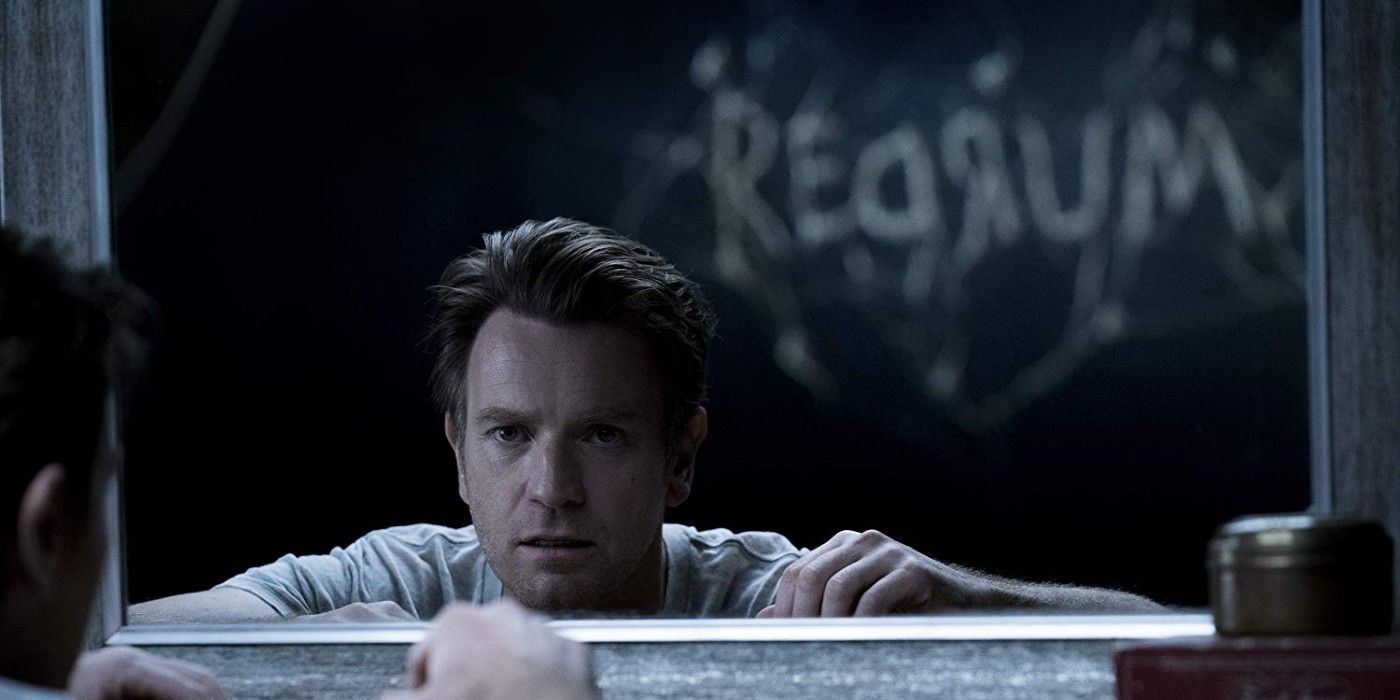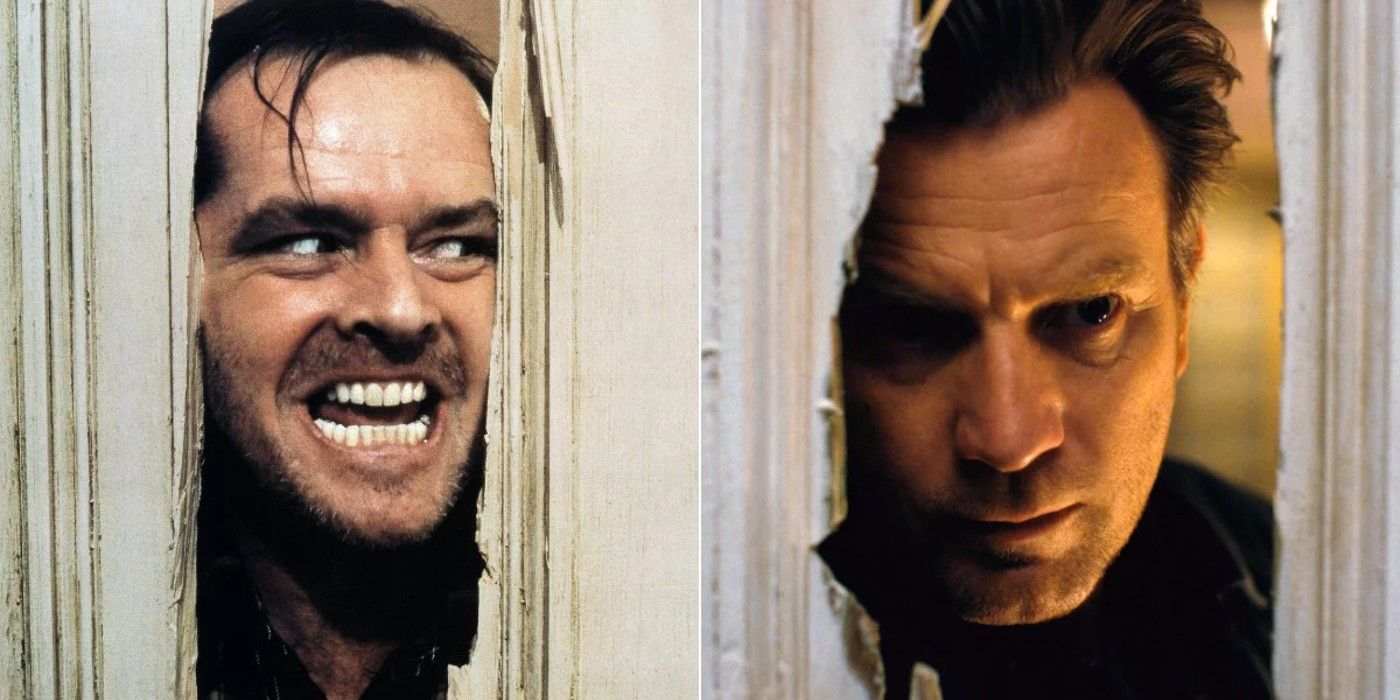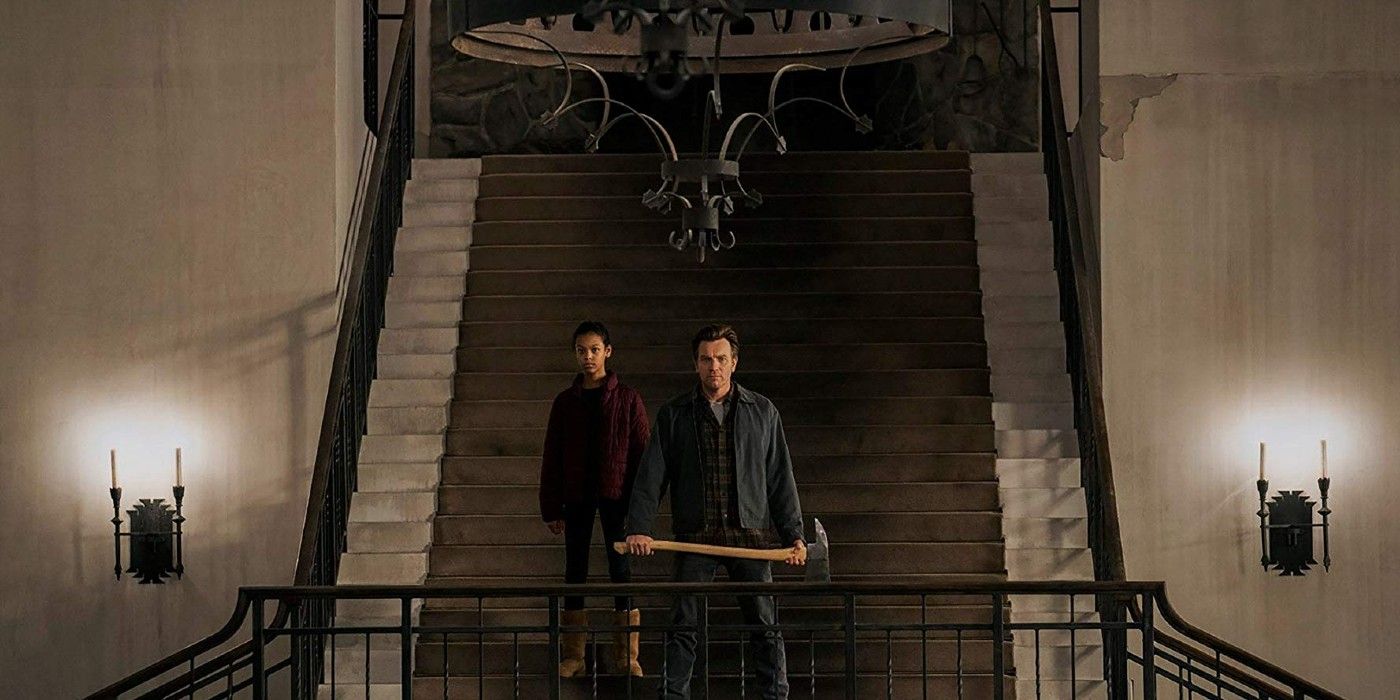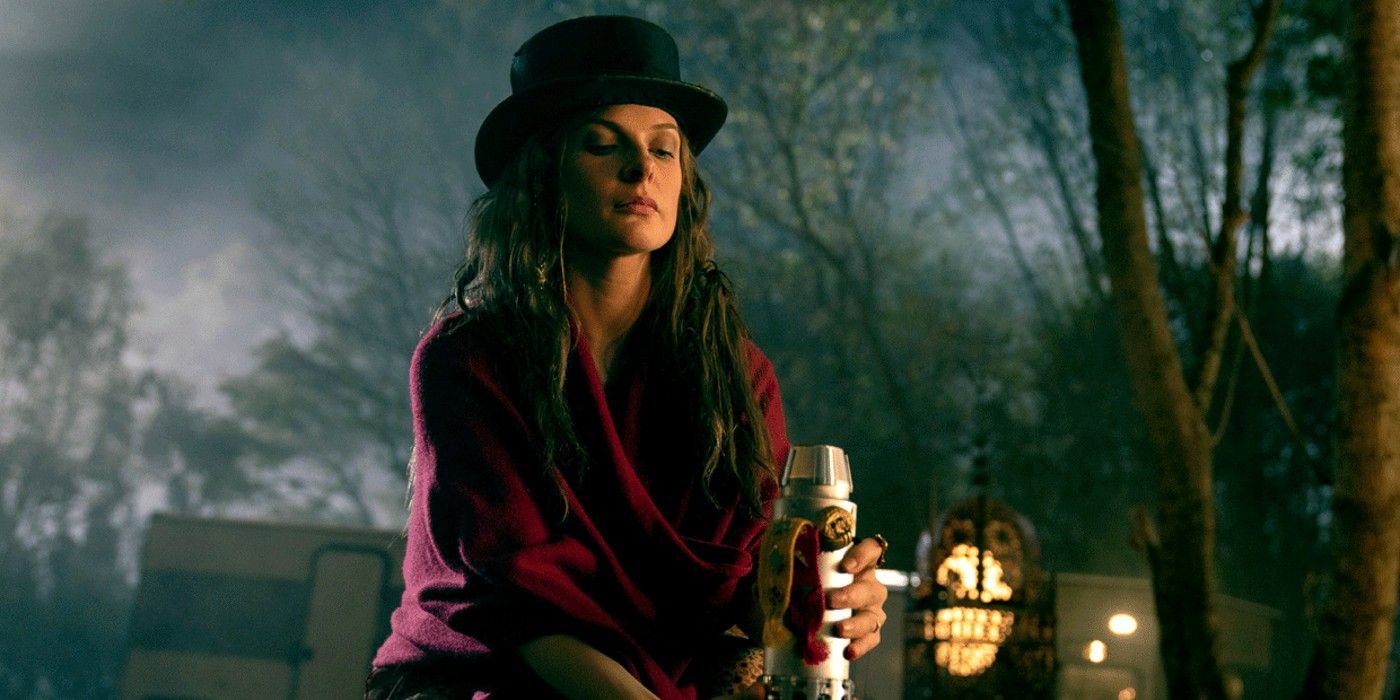Longtime Stephen King horror fans know there is no shortage of book-to-screen adaptations. There also seems to be a general feeling that King adaptations are sometimes top-tier but oftentimes kind of "meh," like the reactions surrounding the latest Firestarter remake. While mainstays like The Shining and Misery get the majority of (well-deserved) recognition, there is a movie that quietly surpasses them all: 2019's Doctor Sleep, the sequel to The Shining.
Released in theaters just over a week past Halloween, this brilliant adaptation was just a few days too late to catch the pre-Halloween horror movie high. All of which is a shame because it is arguably one of writer and director Mike Flanagan's finest pieces of work. No stranger to weighty, immersive horror with cult favorites, such as The Haunting of Hill House and the surprisingly compelling second entry into a technically lower-tier franchise, Ouija: Origin of Evil, Flanagan did a little bit of everything he does best when it came to Doctor Sleep. This wasn't his first time wading in the Stephen King waters, either, as Flanagan had previously made the Gerald's Game film adaptation, a King book once considered unadaptable.
One of the reasons Doctor Sleep was so sweeping of a masterclass in adaptation success was its uncanny and careful ability to meld two worlds also once thought un-meldable: the world of The Shining in King's book versus the film adaptation world of The Shining from Stanley Kubrick's 1980 film. While the film's aesthetics, iconic Overlook Hotel and ending are often what most people think of when they think of the film, King famously hated The Shining, taking issue with everything from its thematic elements to the characterization of Jack Torrance.
In an interview for Eli Roth's History of Horror: Uncut, Flanagan spoke at length about how he won the seal of approval from King in the first place to adapt Doctor Sleep. He crafted an elegant story that took the best of the book and the film, maintaining the iconic stylized aesthetics of the 1980 film while reintegrating important parts of The Shining story into the plot of Doctor Sleep. The result is a movie that hits every right note and ties together two technically similar yet vastly different worlds back into a single cohesive -- and poignant -- story. It's important to note that Flanagan never would have gone forward with his planned adaptation without King feeling comfortable.
While staying true to the beats of Kubrick's film, namely the Overlook's abandoned state rather than it being burnt to smithereens and Jack Torrance's frozen fate rather than his redemption arc, Flanagan conjured an emotional anchor that weighted the film world to the written one. From the opening scenes of a traumatized young Danny Torrance learning to deal with the lingering haunting effects of his time at the Overlook, viewers are transported right into the heart of the story and reconnected to other familiar characters, Wendy Torrance and Dick Hallorann, in a way that inspires immediate emotional investment. The transition to an older Danny struggling with demons and alcoholism is a poignant mirroring of Jack's original arc; the sins of the father and all.
And it is in that parallel that Flanagan pulls off Doctor Sleep's greatest achievement. Of the Kubrick film, what King always hated most was that Jack died a fully evil man, frozen of heart and of body. King, who famously struggled with alcoholism himself, wrote the character of Jack through a semi-autobiographical lens. As such, Jack's redemption and ability to claw his way back to the light, in the end, to act on his love for his family and to have his missteps be forgiven, were hugely important. Yet, the 1980 film completely took that away.
Flanagan's Doctor Sleep adaptation restored that to King. The sins of the father may have lived on in the son but so did the original redemption arc. Here, Danny fights through the fog of the Overlook's possession, and he is able to acknowledge the good that was still inside of his father while acting out Jack's original last act: allowing the boiler to explode, killing himself and destroying the sinister Overlook, so that those he cared about could live. Flanagan created a seamless full circle that regifted the Torrance family their redemption arc in a poetic manner.
Beyond the achingly beautiful parallels and storytelling, the film is brought to life in a fully 360-degree manner. Combining classic motifs from The Shining theme with modern haunting tunes, The Newton Brothers' music completes all the emotional notes, from bouts of sadness and guilt to eerie, hunted nights. The same praise can be given to the actors, as everyone brought a full and deep performance. Ewan McGregor, having personal firsthand experience with battling alcoholism, is the perfect Danny Torrance, portraying the right mix of sadness, hopefulness and troubled thoughts. Kyliegh Curran's Abra is multi-layered and fiery while still harboring the vulnerability of simply being a young girl.
Meanwhile, Rebecca Ferguson's Rose the Hat is perhaps the tipping point that makes Doctor Sleep the best King adaptation. Her motives, malice and deceptively charming exterior make Rose the Hat one of the most terrifying villains of all time. Though she brutally tortures and kills children who shine, she is complex. What she does is objectively evil, but she does it to feed herself and the other members of her vampiric True Knot family. She recognizes right from wrong, yet she massages those concepts into fitting her point of view. She preys on and cultivates fear, but she does so from such a place of serenity, a dangerously thin line to walk in movies when evil incarnate can so easily become a caricature.
An achingly beautiful film, Doctor Sleep is the best of horror and the best of cyclical storytelling, with universal themes of breaking generational curses and redemption. While it pulled in a modest $72 million at the box office, the ensuing years have been kind to its reputation, as word-of-mouth recommendations sing its praises. Doctor Sleep might have gone horribly overlooked upon release, but it is finding evangelists in a hungry and appreciative streaming audience.




